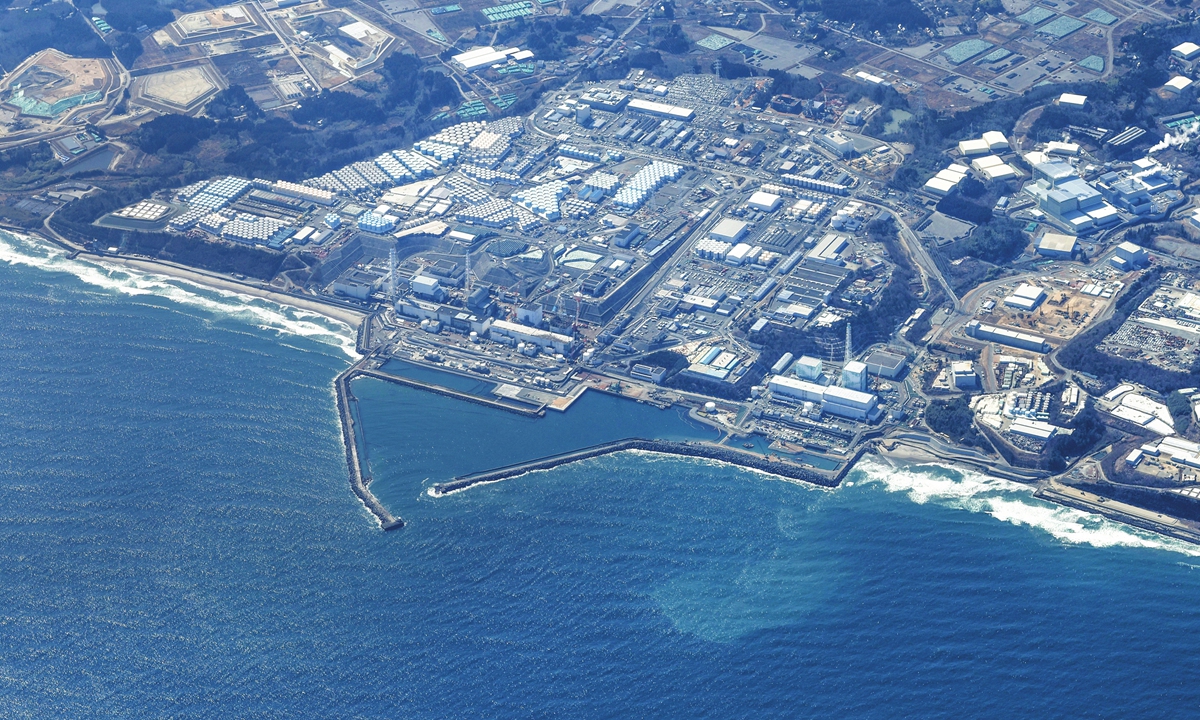
An aerial picture shows Fukushima No. 1 Nuclear Power Plant in Fukushima, Japan in February 2023. The decommissioning plant will soon mark the 12th anniversary of the unprecedented meltdown after the earthquake and tsunami in 2011. The most pressing issue at present is the discharge of treated water into the ocean, as the on-site storage capacity is approaching its limit.
China's Foreign Ministry on Monday urged Japan to deal with the nuclear-contaminated wastewater from the destroyed Fukushima nuclear plant in an open, transparent, scientific and safe manner, saying it must not start discharging the water into the sea before a proper solution is fully discussed and agreed by neighboring countries and relevant international institutions.
The FM Spokesperson Mao Ning reaffirmed China's serious concern and firm opposition to Japan's one-sided decision on Wednesday's press conference, when asked to comment on the Japanese government which has neither changed its decision to release more than one million tons of contaminated water into the ocean, nor responded properly to the concerns of international community.
Japan has accumulated more than 1.3 million tons of nuclear-contaminated wastewater, and it could take more than 30 years to release it all into the ocean. The nuclear-contaminated water contains more than 60 radionuclides, which will spread to the sea all over the world after 10 years of discharge, causing unpredictable harm to the global marine environment and human health, Mao remarked on Monday.
Countries including China, South Korea, Russia and some Pacific island nations have shared concerns; multiple Japanese civil organizations launched a petition with the signature of 180,000 Japanese people to resist the discharge; and Japan's fisheries federation has repeatedly expressed strong opposition, said Mao.
According to TEPCO, the total amount of the nuclear-contaminated water in Fukushima reached 1.32 million tons at the moment and continued to increase, and the contaminated water would be diluted with seawater if discharged.
It is estimated that 254 liters of clean seawater are needed for each liter of nuclear-contaminated wastewater, so the total amount of contaminated water Japan will eventually release into the ocean will exceed 300 million tons.
The spokesperson stated Japan should pay attention to the concerns of the international community and the Japanese people, revoke the wrong decision, stop all preparations for the discharge project, and fulfill its due international obligations.
Global Times




